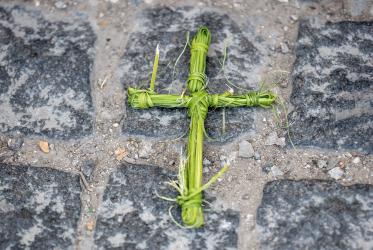Displaying 1 - 20 of 746
"In the end, it comes down to…love each other"
24 April 2024
Is health the same for all?
17 April 2024
Voice of churches vital during UN women’s rights talks
28 March 2024
2024 Joint North-South Korea Easter Prayer
28 March 2024
Easter prayers – by Rev. Meghan Johnston Aelabouni
21 March 2024
An Easter prayer – by Mgr William Shomali
14 March 2024
An Easter prayer – by Mgr William Shomali
14 March 2024













